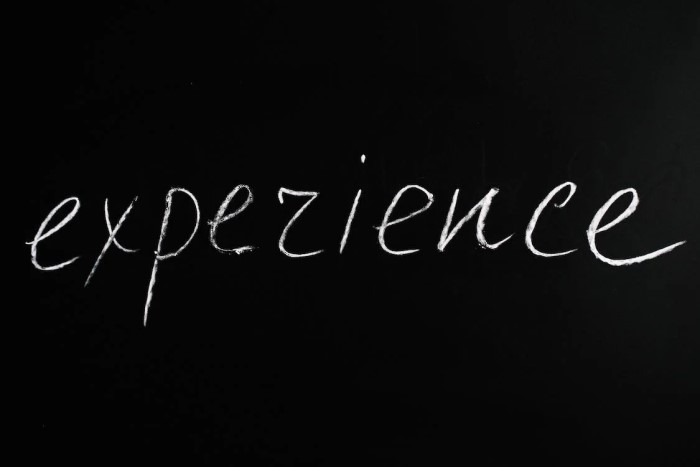
At some point or another in your life, there may come a time when you need to hire a personal injury lawyer. Over the last few years, personal injury claims have increased by over 97%. In fact, 2022 saw personal injury lawsuits valued at $53.1 billion.
Perhaps someone deliberately crashed into your vehicle or caused you harm in some way. Regardless of why you need a personal injury lawyer, you will want to hire a good one. However, this is easier said than done, considering the number of attorneys out there.
What qualities make a good personal injury lawyer? Won’t I get more or less the same experience from any lawyer in my budget? What other aspects should I be looking into?
In this article, we will explore six things that can help you pick the best personal injury lawyer for your case.
1. Legal Expertise and Experience
This will be the first thing you want to look at when you are making a list of potential personal injury lawyers to hire. While the other aspects on this list are important, they somewhat rely on these two fundamental areas. You want to ask them about their specific focus within personal injury law and how much experience they have in that dimension.
Many lawyers tend to state a large number when asked how much experience they have. They start counting from the time they started to practice law, even if their personal injury experience is limited. No matter what, you will definitely want to have legal counsel.
It can be tempting to go at it alone to save legal fees. However, data shows that only 51% of people receive a settlement payout when they have no legal representation. In contrast, the likelihood of getting a payout jumps to 91% for people who hire a lawyer.
2. Communication and Availability
As Edmonton-based personal injury law firm Moustarah & Company states, personal injury cases can be a tough time for people. Having good lawyers who are client-focused service will be of great help. However, a lot of people have a flawed perception of what interacting with a lawyer is like.
Popular media has implanted the image that lawyers are always by your side, guiding you through every step. In reality, you may be surprised at how little you get to communicate with them.
If you are looking at a relatively popular lawyer, they will be dividing their time between their clients. You may want to set realistic expectations for how and when you interact with your lawyer. Try to gauge this aspect when you have your first meeting with them.
3. Track Record and Success Rate
Sometimes, a lawyer may have a natural flair for personal injury cases despite not having extensive experience. To ensure that you aren’t missing out on a very good attorney, you want to look into the track record and the outcomes of past cases. Once again, we want to be as specific as possible.
If you are looking for a personal injury lawyer because of a car accident, but the attorney’s experience has mainly been with lawsuits involving construction, they may not be the best match.
At the same time, there can be some good that comes with a diverse background. For instance, lawyers who have worked in criminal law before switching over to personal injury tend to have above-average courtroom trial and negotiation skills.
4. Fee Structure and Financial Terms
This is more of a practical concern, but it is something that you will want to look into when hiring a personal injury lawyer. Do they offer fees on a contingency basis, or do they want upfront fees? Be sure that you look into the fee structure and inquire about any additional costs that may arise.
If they operate on a contingency fee basis, remember that the average percentage is often 30% to 40% of the settlement amount. That is a significant portion no matter the settlement amount.
Typically, lawyers charge three different fee structures: contingency, hourly rates, and flat fees. Sometimes, even if they mention the fees are on a contingency basis, you may still have to pay a certain amount for a loss. Ensure that you clarify these aspects well in advance.
5. Their Client Testimonials and Reviews
There is a chance that you may come across some lawyers who are adept at convincing people of their prowess. If you ever feel like something is a little too good to be true, take the time to do some extra research.
Try to find out who their past clients were and reach out to them for a small chat. Even a quick conversation over the phone can yield useful information regarding their experience. You can also look at public reviews that past clients have left. Both options can provide some much-needed context.
6. A Conflict of Interest Check
This is often a concern when you are going through a law firm, and you live in a particularly small town or city. There is a chance that even the entity you are in conflict with has also hired the same firm. To prevent such situations from arising, do a quick conflict of interest check. It will save you considerable stress in the long run.
Typically, there are four conflict of interest situations you want to watch for. Direct; where your lawyer is representing another client with an opposing interest in your case. The second type is implied conflict; where your lawyer’s relationship with another client could affect your case.
The third type of conflict would be vicarious conflict, where loyalty to a past client can negatively affect how they treat your case. Lastly, we have aggregate conflict, which usually happens when a law firm takes on several clients who all have conflicting interests.
Conclusion
Hopefully, this article has given you some context on what you should be looking for if you need a personal injury lawyer. Don’t hesitate to explore different options until you find the best representation. After all, the focus is on getting the best service possible. The last thing you want to do is hire a lawyer who fumbles your case while expecting high fees.









